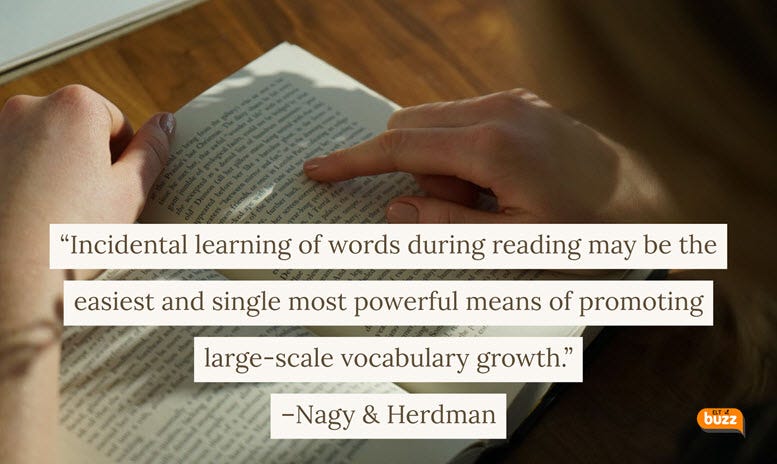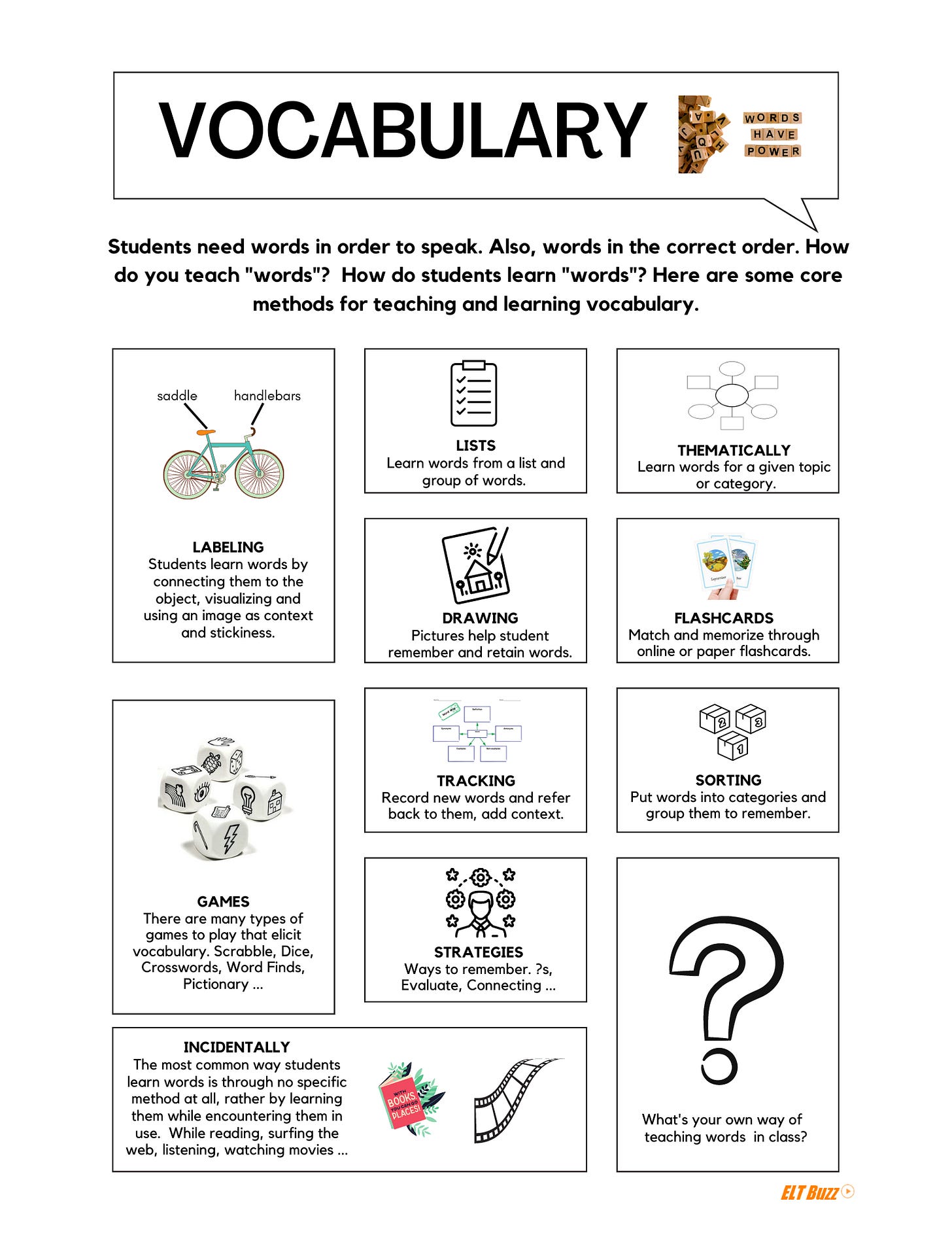ELT Pros Linkedin | Videos | Blog | Printables | ELT News | TpTs | Youtube
Words, love ‘em or hate ‘em - as a teacher you can’t ignore them. Vocabulary is central to the process of teaching a language.
But there is no magic bullet, don’t let anyone tell you so. You can have an approach; lexical focus, flashcards, stories, recycling, chunks, tracking lists, mnemonic tricks - but the mystery of how and why students remember some words and not others will be elusive.
Matter of fact, there is even disagreement in the linguistic community about what a word is or how we know, we know a word. So no wonder, words remain a mystery to deal with in the language classroom.
Much of the vocabulary students will acquire in your classroom (long-term) will be incidentally learned, not directly learned. We got to face that fact but still, we must have tools, a method for going into battle.
I’d like to share some resources and ideas for lessons that might help you teach vocabulary. My short list.
Tracking. It’s been showing to assist many students. They write down daily, the vocabulary they’ve learned. Review the next day. The very act of writing down, recording one’s vocabulary learning can help with uptake. See this free tracking sheet in our lesson library.
Chunks. A chunk is a group of words that go together often. Linguists would consider them a “word” in and of themselves. See our full presentation of chunks with exercises to present (Workbook). Also, the wonderful video “Words”, a classic for int. or adv. level lessons.
Brainstorming. A simple and powerful way to elicit existing vocabulary from students on a topic or theme. See all our brainstorming supplemental materials.
Academic Vocabulary. To succeed at school and in higher education, especially writing academically, students need to acquire on top of their social English, a lot of specific academic words. See our new Top 50 Academic Words. Also, our full product and presentations for the AWL - Academic Word List.
Flashcards. Flashcards provide both self-study online for students and a strong material for classroom lesson delivery. We are a verified Quizlet creator - find hundreds of professionally designed sets ready to go in our lesson library.
YouTube. Don’t underestimate video when it comes to teaching words and providing context for vocabulary. See our YouTube channel with new videos daily (please give us a subscribe!), like the video above, all about using words.
There are so many other ways to teach “words”. Here is a short list, an infographic with some more suggestions. Download the PDF here »>
Interested in what the vocabulary size of yourself or your students is? Try our vocabulary size assessment tool on TpTs.







The Value Of Vocabulary